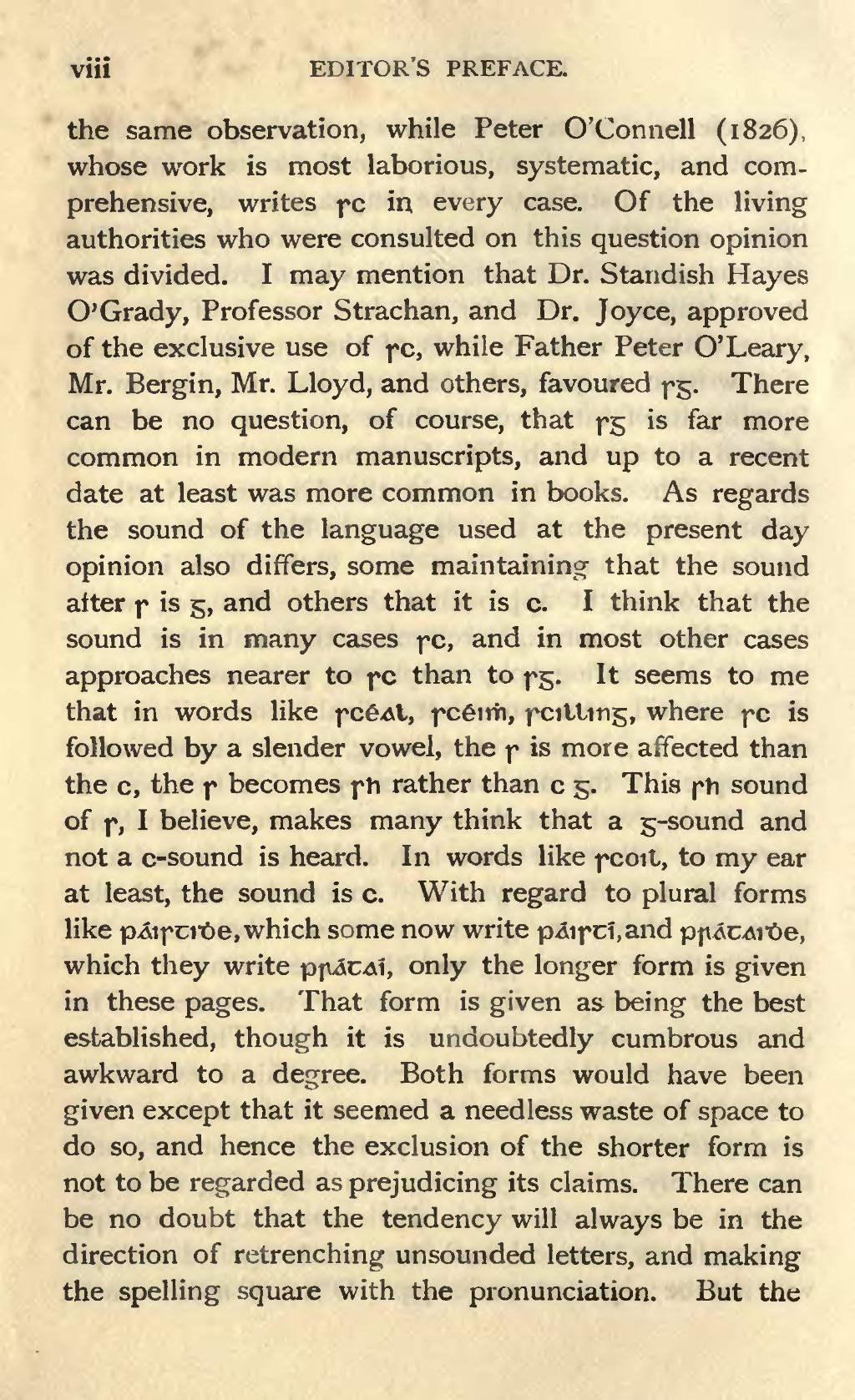the same observation, while Peter O'Connell (1826), whose work is most laborious, systematic, and comprehensive, writes sc in, every case. Of the living authorities who were consulted on this question opinion was divided. I may mention that Dr. Standish Hayes O'Grady, Professor Strachan, and Dr. Joyce, approved of the exclusive use of sc, while Father Peter O'Leary, Mr. Bergin, Mr. Lloyd, and others, favoured sg. There can be no question, of course, that sg is far more common in modern manuscripts, and up to a recent date at least was more common in books. As regards the sound of the language used at the present day opinion also differs, some maintaining that the sound after s is g, and others that it is c. I think that the sound is in many cases sc, and in most other cases approaches nearer to sc than to sg. It seems to me that in words like scéal, scéiṁ, scilling, where sc is followed by a slender vowel, the s is more affected than the c, the s becomes sh rather than c g. This sh sound of s, I believe, makes many think that a g-sound and not a c-sound is heard. In words like scoil, to my ear at least, the sound is c. With regard to plural forms like páistiḋe, which some now write páistí, and prátaiḋe, which they write prátaí, only the longer form is given in these pages. That form is given as being the best established, though it is undoubtedly cumbrous and awkward to a degree. Both forms would have been given except that it seemed a needless waste of space to do so, and hence the exclusion of the shorter form is not to be regarded as prejudicing its claims. There can be no doubt that the tendency will always be in the direction of retrenching unsounded letters, and making the spelling square with the pronunciation. But the
